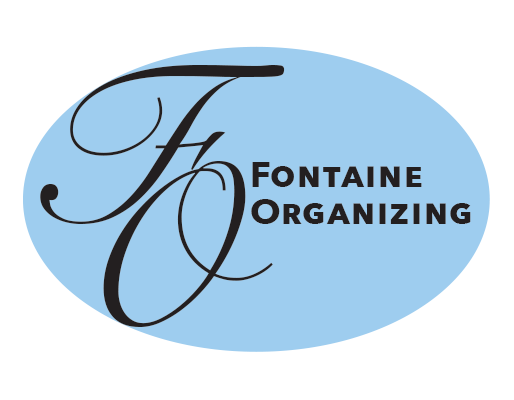Making Your Organizing Goals More Realistic
Setting goals to get organized is common, especially when you’ve been struggling with disorganization for years. Despite best intentions, you may find yourself stuck due to unrealistic expectations and inadequate planning.
Here's how you can make your organizing goals more achievable:
Too Broad an Area?
One common mistake is setting goals that are too big. If you plan to "organize my entire house," you're likely looking at a task that's too overwhelming to tackle. Instead of putting pressure on yourself to do it all, cut your goals in half, and then in half again. Start with one room, or even one section of a room, like your desk or kitchen counter. This approach not only makes the task feel more manageable but also gives you quick wins that boost feelings of competence. Once you have completed your small section, you’ll have proof that you really can do it!
Get Your Brain on Board
You might feel that you truly want to get organized, but your subconscious brain may not be fully on board. When your brain doesn't trust your ability to complete a task or if it isn’t sure your plan will work, it might sabotage you with distractions. To counter this, set very specific, time-bound tasks. Use a timer for each small part of the organizing process. Set a timer for 10 minutes and vow to use that time to do a very specific task; for example, put away anything that already has a home. Having a timer running will focus your attention and having a very specific task will give your subconscious some assurance that you know what you’re doing.
Stop Looking at the Big Picture
If all you can see is the magnitude of the mess, you’re likely to be paralyzed into inaction. Focus in on one area at a time by draping a sheet over the areas you are not working on. Alternatively, take a picture of a small space and work only on the area included in the picture.
Feeling Overwhelmed and Frozen
Feeling overwhelmed is natural when faced with a cluttered space or an extensive list of tasks. It’s time to remind yourself that tasks are "better done than perfect" [Is Perfectionism Keeping You from Getting Organized? — Fontaine Organizing ]. Perfectionism (the belief that an outcome can and should be perfect) can paralyze action; instead, aim for progress. If you tend to be an all-or-nothing type of person, remember that even a small step is better than none.
Most people are not adept at estimating how long tasks will take
Estimation Errors
Most people are not adept at estimating how long tasks will take. As a rule of thumb, expect your organizing project to take at least twice as long as you initially think. This buffer will reduce your stress by giving you room for unexpected interruptions or slower progress.
Proving Capability Through Tiny Steps
Building confidence in your organizing skills requires proof that you can indeed manage your space. How do you achieve this? By taking tiny steps. Each small task you complete adds to a pile of evidence that you are capable. Taking a picture before and after organizing a small area can visually reinforce your progress.
Buddy System and Accountability
Finally, having a buddy can make a significant difference. They can help keep you accountable, provide moral support, or even assist in the physical organizing tasks. Sometimes, just verbalizing your goals to another person can clarify your intentions and solidify your commitment.
Making your organizing goals realistic involves breaking them down into smaller, manageable parts, setting strict time limits to avoid distraction, and understanding your own limitations in task estimation. By addressing these issues, you can turn overwhelming tasks into a series of small victories, leading to a more organized and less stressful life. Remember, the journey to organization is a marathon, not a sprint; pace yourself accordingly.




